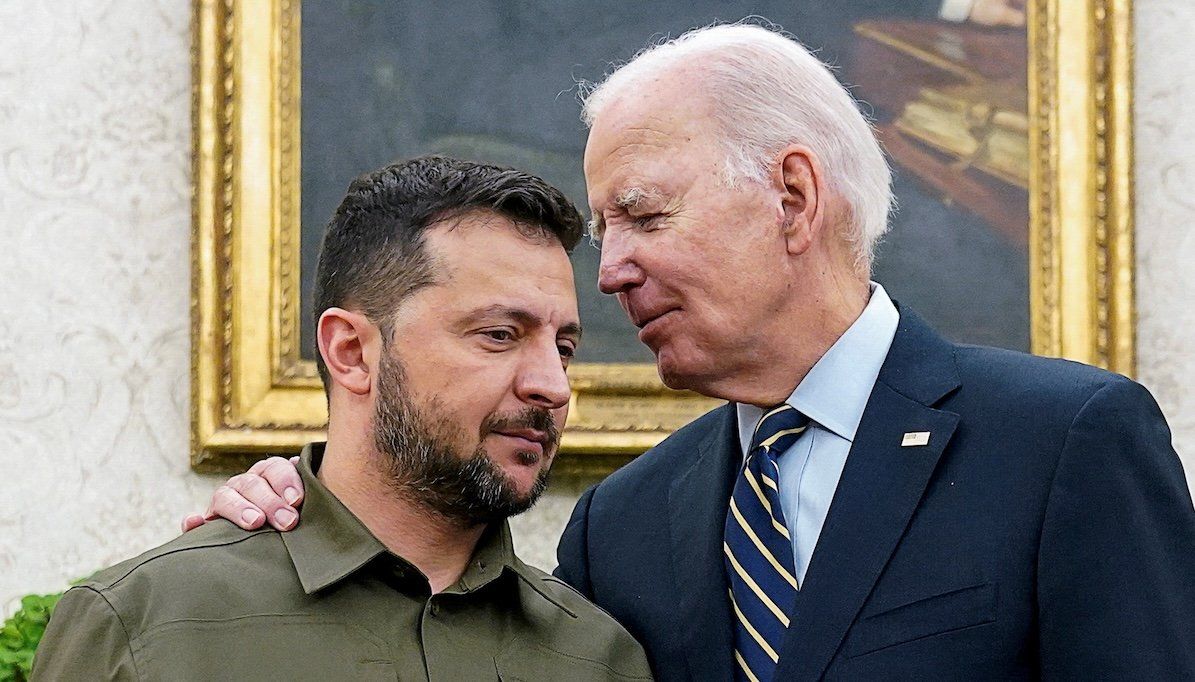Ukrainian President Volodymyr Zelenskiy is embraced by US President Joe Biden in the Oval Office back in September 2023.
US President Joe Biden reversed course on Sunday and authorized Ukraine to use US-made long-range ATACMS missiles for limited strikes inside Russia, in response to North Korea’s deployment of thousands of troops to aid Moscow. While hoping to deter Pyongyang from deeper involvement, Biden also wants to bolster Ukraine’s offensive capability before President-elect Donald Trump takes office and makes good on his pledge to cut American aid to Kyiv.
How might Moscow respond? According to Eurasia analyst Alex Brideau, Russian President Vladimir Putin may respond in kind. “Putin indicated over the summer that he would arm US adversaries in response to Western weapons being used on Russian territory. There have been subsequent reports this fall that Russia has offered some support to Houthis attacking shipping in the Red Sea,” Brideau says.
But if the missiles are used to fire deep into Russian territory, the Kremlin warned early Monday that it would see this as an attack from the US, not Ukraine, and said Biden was adding “oil to the fire” with this policy reversal.
Winter warning. Biden’s announcement also follows Russia’s launching of 120 missiles and 90 drones this weekend, its most intense offensive since September. The attacks targeted energy infrastructure across the country ahead of the cold winter months. While Ukrainian forces neutralized 144 of the projectiles, thermal energy plants suffered “significant damage,” resulting in emergency blackouts, and at least two people were killed and several others were injured, including two children. Although Ukraine’s nuclear plants were not directly hit, key electrical substations were. According to the International Atomic Energy Agency, only two of Ukraine’s nine reactors are now operating at full capacity.
A response to Scholz? The Russian strikes come two days after German Chancellor Olaf Scholz called President Vladimir Putin for the first time in two years. Though Scholz urged Putin to withdraw his troops, Ukrainian President Volodymyr Zelensky slammed the call for opening a “Pandora’s box” that could undermine efforts to isolate Moscow.